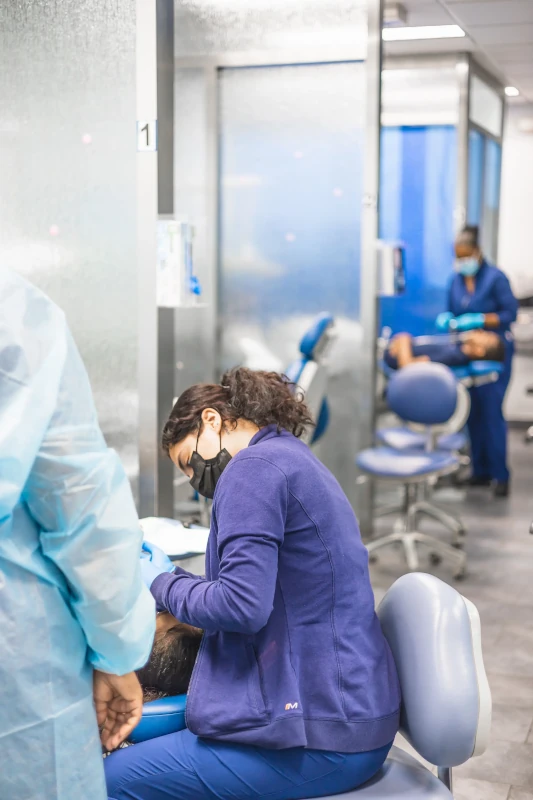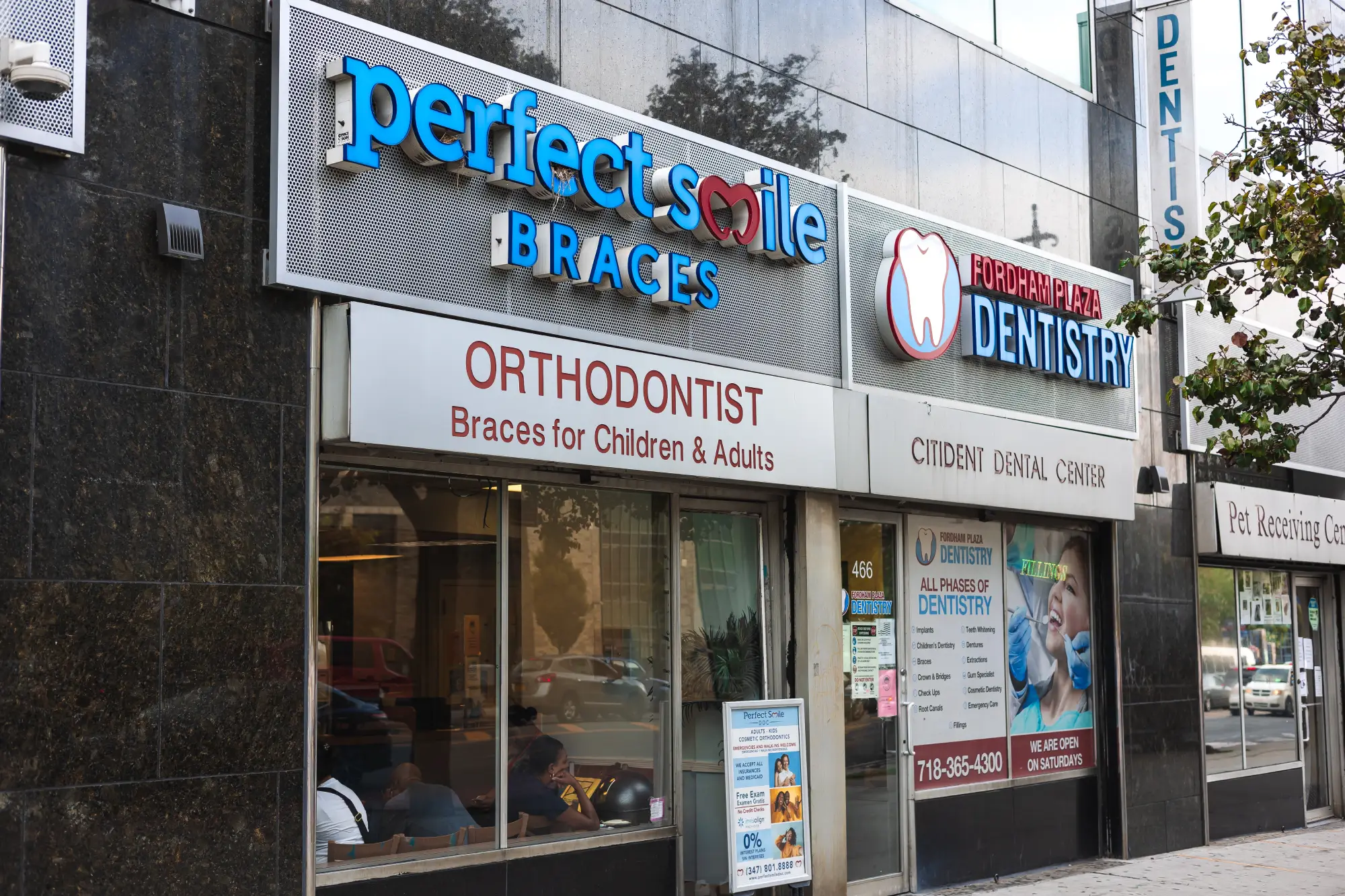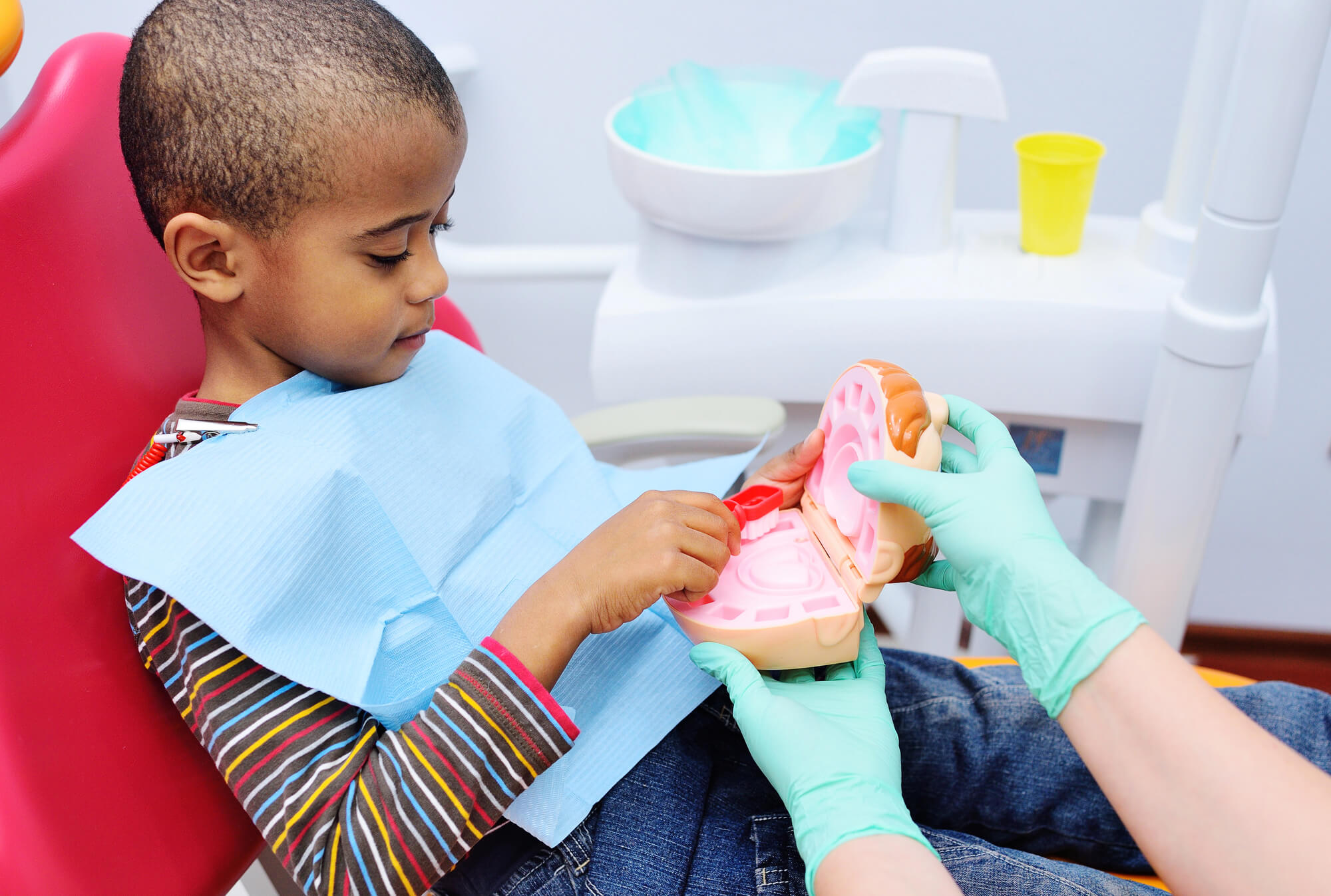Baby Teeth Eruption Chart: Milestones to Look Out for
Every stage of your baby’s growth is a valuable milestone to look out for as a parent, but these times may not be as exciting for your baby. Their newly erupting teeth can be painful, leading to fussy babies and many sleepless nights. With the help of our NY pediatric dentistry professionals, this process can be a little easier.
Understanding the stages babies' teeth go through as they develop will help you confidently handle the teeth eruption process and allow you to find ways to soothe your growing child. Here’s what you can do to achieve that.

How Do Baby Teeth Develop?
From the first tiny buds appearing beneath the gums to a full set of baby teeth, the teething period is long and often uncomfortable. In fact, certain kids even experience mild fevers throughout the process!
When it comes to offering the best care and comfort for your baby, understanding what’s to come during these stages is key. Each child will have a different age at which a tooth erupts or falls out, but here’s a general idea of what to expect:
1. The Beginning in the Womb (0-6 Months Pregnancy)
Teeth start to develop long before your baby is born. Around the sixth week of pregnancy, your unborn baby’s primary teeth begin to form beneath the gums. These tooth buds will grow into the baby teeth that erupt during infancy.
During the third or fourth month of gestation, the hard tissues that comprise dentin and tooth enamel start to form. It’s essential for the mother to get the proper nutrition during this stage to ensure her baby's teeth develop to their full potential.
Pay close attention to the amount of calcium, phosphorus, and vitamin D you consume during this period. These nutrients are essential for the development of healthy teeth.
2. Teething Begins: 0-6 Months Old
Even though teeth have grown since pregnancy, most babies are born without visible teeth. Although rarely, some babies are born with one or two teeth, known as natal teeth.
During your baby’s first six months, their teeth won’t appear as they are still growing beneath the gums. You may notice that their gums are slightly swollen, but there should typically be no pain or discomfort.
Also, you might notice your infant is drooling excessively. This happens because their salivary glands are developing.
3. The First Tooth: 6-10 Months Old
The first tooth erupts between the first six and ten months of a baby’s life, and it’s usually the bottom front teeth or lower central incisors.
Although we tend to say that teeth “emerge,” your baby’s teeth aren’t breaking through the tissue to make room for themselves. The body releases some hormones that help break out the tissue on its own so teeth come through freely.
This doesn’t mean it will be comfortable for your baby. They may be fussy, drool excessively, and start chewing on objects more frequently. You may also notice tender, swollen gums, a slight fever, and irregular sleep patterns when their first tooth arrives.
4. Rapid Development: 8-16 Months Old
Between 8 and 16 months, a series of teeth will start to erupt, usually in pairs. The lateral incisors on either side of the front teeth come first, then the upper central incisors. By the time they are 16 months old, your baby may have up to eight teeth.
5. Molars Emerge: 13-19 Months Old
Typically, the molars (the larger teeth at the back of the mouth) come in next. The first molars erupt between the ages of 13 and 19 months. Due to their size and increased space requirements, these teeth can irritate the gums more. Your baby might get angrier and start biting and chewing on harder objects more frequently.
Another symptom to watch out for is red or swollen cheeks close to the molars. Make sure to provide your baby with food that is safe for chewing, like peeled cucumber sticks or soft teething biscuits. And make sure to avoid teething jewelry, as the American Dental Association has warned parents against them due to them being a choking hazard.
6. Canine Teeth: 16-23 Months Old
The pointed teeth that erupt between incisors and molars are called canine teeth or cuspids. These teeth erupt between 16 and 23 months of age, helping your baby tear down food more effectively. Typically, the upper canines erupt before the lower canines.
Because canine teeth are smaller and sharper than other teeth, your baby may occasionally experience more discomfort.
7. Second Molars: 23-33 Months Old
The last of your baby’s primary teeth to erupt are typically the second molars, which are found at the very back of the mouth. These start to show up at 23 to 33 months.
After the second molars erupt, your child will have all 20 primary teeth, laying the groundwork for years of smiling, eating, and speaking. They will retain these teeth until approximately the age of six, at which point their first permanent tooth will start to erupt.
Because another “replacement” is set in the way, many parents make the mistake of not properly caring for their baby’s first smile. However, teaching your child the importance of good oral hygiene from a young age is critical to ensuring they have a healthy smile for years to come. Teach your child to brush twice a day using a soft-bristled toothbrush and a tiny bit of fluoride toothpaste to help prevent cavities.
Tips for Soothing Teething Discomfort
The teething period poses diverse challenges for the entire family: your baby is doing their best to eat, sleep, and gain the strength they need to grow big and healthy while fighting some pesky, bothersome incoming teeth.
Meanwhile, you’re also struggling to sleep. Every night, they get fussy with the discomfort in their swollen, sore gums. There are certain things you can do to soothe them in the meantime, including:
- Soak a clean washcloth in water and put it in the freezer. Then, offer it for your baby to chew on.
- Gently use a clean finger to massage your baby's gums.
- Give them healthy but chilled foods like yogurt.

Does Your Baby Have Their First Tooth? Take Them to a NY Pediatric Dentistry Office!
The eruption of new teeth is essential for chewing, speaking, and general health. By being prepared, parents can give their children the best care and comfort during this occasionally difficult time. Make sure to schedule their first dental visit by the time they turn one.
Reach out to Perfect Smiles Doc and start teaching your baby the importance of dental health early on!








